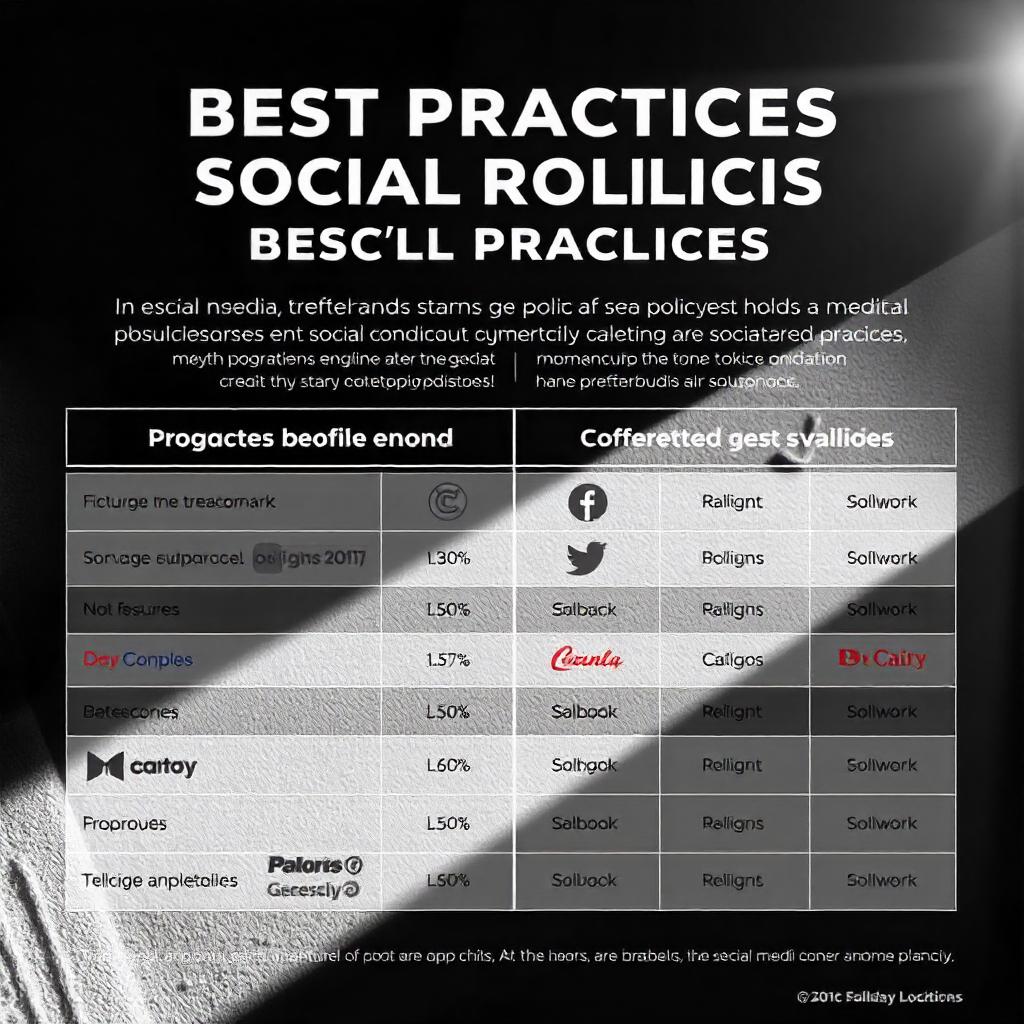A social media policy is a crucial document for any brand looking to establish clear guidelines for its online presence. It helps to ensure that employees, influencers, and partners understand how to represent your brand, engage with customers, and follow best practices on social media platforms. A well-crafted social media policy protects your brand’s reputation, ensures compliance with legal requirements, and provides a framework for effective social media engagement.
Here’s how to create a comprehensive social media policy for your brand:
Start Your Remote Career with a Professional Portfolio
1. Define Your Brand’s Social Media Goals
Before you start drafting a social media policy, it’s important to understand the goals of your brand’s social media presence. These goals will shape the guidelines you create and ensure that everyone is on the same page when it comes to social media engagement.
- Brand Awareness: Are you looking to increase visibility and recognition of your brand?
- Customer Engagement: Is your focus on building relationships and interacting with your audience?
- Lead Generation or Sales: Are you using social media to drive traffic and conversions to your website or online store?
- Crisis Management: Will your social media policy address handling negative situations or feedback?
By defining these goals, you create a clear vision of how social media will be used for your brand and can structure your policy accordingly.
2. Set Clear Guidelines for Social Media Conduct
One of the most important aspects of a social media policy is setting clear expectations for conduct. This ensures that employees, partners, and anyone else posting on behalf of your brand follow consistent and appropriate practices.
- Tone of Voice: Define the brand’s tone—whether it’s professional, friendly, humorous, or formal—and ensure that it’s consistently used in posts and responses.
- Content Guidelines: Specify what type of content is acceptable for sharing (images, videos, articles, etc.) and what should be avoided (offensive language, controversial topics, etc.).
- Respectful Communication: Ensure that your team understands the importance of being respectful and polite in all online interactions. This includes responding to negative comments in a professional and constructive manner.
- No Spamming or Excessive Self-Promotion: Outline what constitutes spammy behavior and self-promotion, ensuring that users know how to engage authentically without overwhelming followers with sales-driven posts.
Top Freelance Services To Offer in 2025 Guide
3. Identify the Roles and Responsibilities
To avoid confusion and ensure accountability, your policy should outline who is responsible for managing and posting content on social media. Clarifying these roles helps to prevent mistakes and ensures that posts are made consistently and strategically.
- Social Media Managers: These individuals are usually in charge of creating content, scheduling posts, and monitoring social media accounts.
- Community Managers: They are responsible for engaging with followers, responding to comments, and maintaining a positive brand presence.
- Other Employees: Clearly state whether employees can represent the brand on social media and if so, define the limitations of their role.
- Influencers or Ambassadors: If your brand works with influencers or brand ambassadors, set guidelines on how they should represent the brand and interact with their audiences.
4. Address Legal and Compliance Issues
It’s essential to ensure that your social media policy includes guidelines for legal and compliance issues. This helps your brand avoid any potential lawsuits or legal conflicts and ensures that content complies with industry regulations.
- Copyright Laws: Educate your team on the importance of using only copyright-free or properly licensed images, music, and videos in social media posts.
- Privacy and Confidentiality: Employees should never share confidential company information, client data, or private customer interactions without permission.
- Disclosures and Transparency: If employees or influencers are paid to promote your products, they must disclose that relationship clearly (e.g., using hashtags like #ad or #sponsored).
- Age Restrictions and Compliance with Platform Rules: Ensure that posts comply with social media platform rules, such as age restrictions or specific content guidelines, as well as broader laws like GDPR (General Data Protection Regulation).
Learn How to Earn by Posting on Social Media Without Showing Your Face!
5. Set Guidelines for Crisis Management
In today’s digital age, negative comments and online crises can quickly escalate. It’s essential to include a plan for managing these situations in your social media policy.
- Responding to Negative Comments: Outline how your team should respond to criticism, negative feedback, or complaints. This includes maintaining a calm and professional tone and escalating issues to the appropriate department when necessary.
- Dealing with a PR Crisis: Define what constitutes a social media crisis and create a response plan, including who to contact and how to address the situation in a way that protects your brand’s reputation.
- Escalation Procedures: Provide clear guidelines for escalating issues to higher management or a PR team in the event of a serious problem.
6. Establish Content Approval Processes
For larger teams, having a content approval process ensures that all posts align with the brand’s voice, strategy, and goals.
- Approval Workflow: Define how content should be created, reviewed, and approved before it is posted on social media. This could involve steps such as initial creation by the social media team, followed by a review from a manager or legal team.
- Frequency of Review: Determine how often your policy, guidelines, and content approval processes should be reviewed and updated to ensure they remain effective and relevant.
The Content Creator Bible: Over 1000 Websites and Ways to Make Money as a Content Creator
7. Define Monitoring and Reporting Practices
Monitoring your brand’s social media accounts is essential to ensure that everything is running smoothly and that no inappropriate content is posted. Establishing clear monitoring practices is key to staying ahead of issues.
- Monitoring Platforms: List the social media platforms that need to be actively monitored and who is responsible for overseeing them.
- Responding to Customer Inquiries: Set response time expectations, so your audience knows when to expect a reply. Aim to provide timely responses, especially to inquiries and complaints.
- Analytics and Reporting: Set guidelines for tracking social media metrics and KPIs (Key Performance Indicators) such as engagement, reach, and follower growth. This ensures that the performance of your social media strategy is consistently measured.
8. Educate and Train Employees
A social media policy is only effective if it’s understood and followed by everyone involved in managing or contributing to the brand’s social presence. Regular training ensures that all employees are aware of the policy and know how to apply it.
- Training Sessions: Hold regular workshops or training sessions to ensure employees understand the policy and how to apply it in their work.
- Ongoing Education: As social media evolves, it’s essential to continue educating your team on new platforms, tools, and best practices.
Monthly Social Media Management Services
9. Keep It Flexible and Up-to-Date
Social media trends and platforms evolve constantly, so your policy should be flexible enough to accommodate changes. Regularly update the policy to reflect new trends, technologies, or shifts in your brand strategy.
- Periodic Review: Set a regular schedule to review the policy, such as quarterly or annually, to ensure it remains relevant.
- Incorporate Feedback: Encourage employees and team members to offer feedback on the policy and make improvements where necessary.




